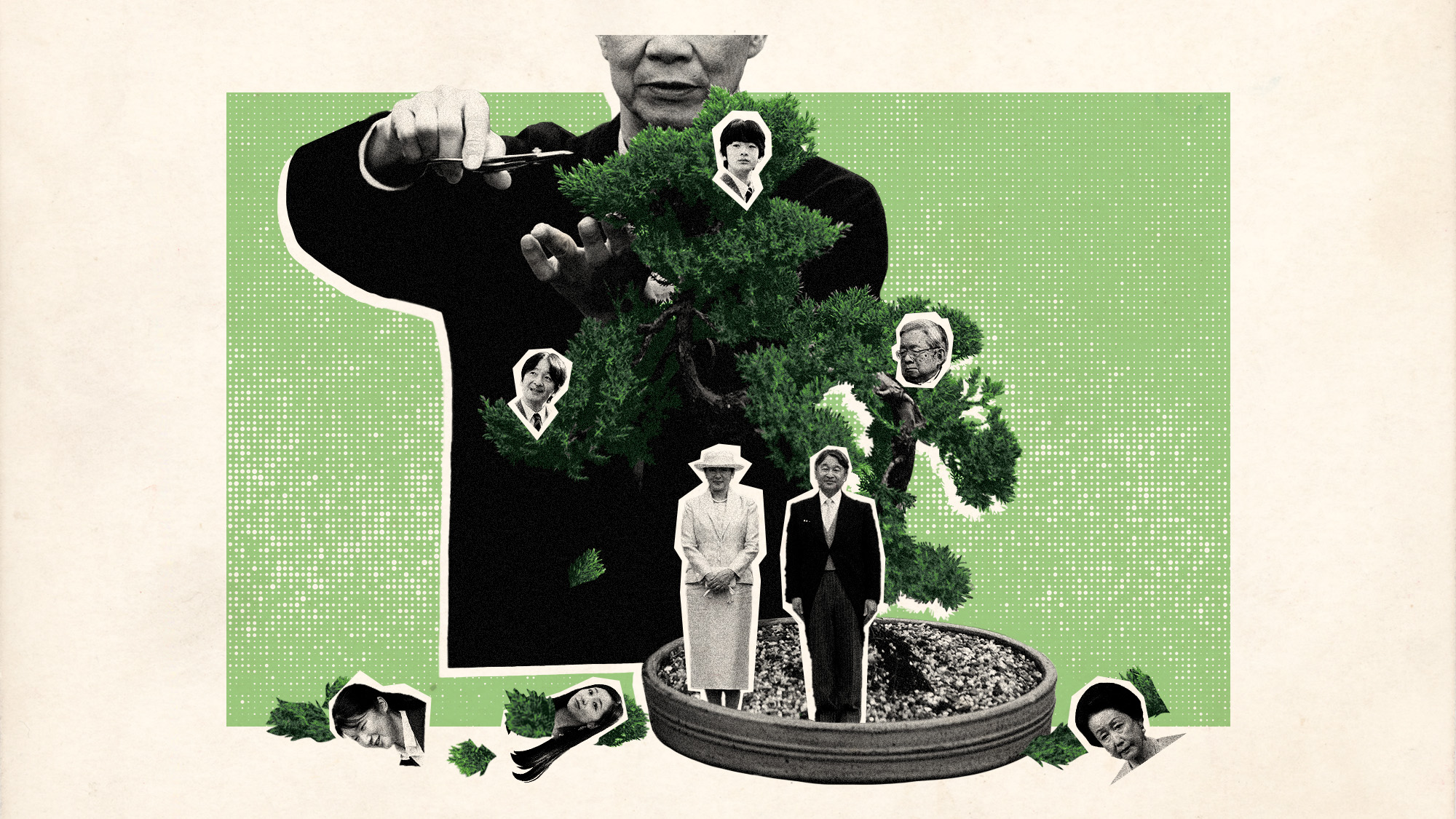Japan's succession drama puts future of world's oldest monarchy in doubt
Public feel 'sense of crisis' and politicians debate changing rules as Emperor has no male children and only three heirs

A free daily email with the biggest news stories of the day – and the best features from TheWeek.com
You are now subscribed
Your newsletter sign-up was successful
When Japan's Emperor Naruhito ascended the Chrysanthemum Throne in May 2019, after the abdication of his father, he vowed to bring the royal family into the modern age.
Five years later, the world's oldest continuing monarchy is grappling with a question as old as monarchy itself: succession. Under the Imperial Household Law of 1947, succession is limited to male heirs on the emperor's father's side (i.e. down the paternal line). Naruhito, the grandson of Japan's longest reigning emperor, Hirohito, has only a daughter with Empress Masako: 22-year-old Aiko, Princess Toshi.
According to a Kyodo News poll published this week, 72% of respondents said they felt a "sense of crisis" about the stability of the succession. And 90% would support the idea of a reigning empress, as the imperial family "struggles with a shrinking number of male heirs".
The Week
Escape your echo chamber. Get the facts behind the news, plus analysis from multiple perspectives.

Sign up for The Week's Free Newsletters
From our morning news briefing to a weekly Good News Newsletter, get the best of The Week delivered directly to your inbox.
From our morning news briefing to a weekly Good News Newsletter, get the best of The Week delivered directly to your inbox.
Emperor Naruhito's succession problem
Japan's imperial line, said to be able to trace its roots back to the sun goddess Amaterasu in 600BC, has included eight empresses down the patrilineal line, with the last on the throne in the 18th century.
But in all the nation's imperial history, there has never been a single emperor or empress from the matrilineal line, said Japan Today.
Naruhito only has three heirs: his younger brother and heir presumptive Fumihito, Crown Prince Akishino (58); his 17-year-old nephew Prince Hisahito; and his paternal uncle Prince Hitachi (88).
The birth of Aiko in 2001, while "much celebrated", did not resolve Naruhito's succession problem, said the BBC – especially because his brother Fumihito had only two daughters. However, it did lead the Japanese government to begin debating whether to change the law to allow women to ascend to the throne.
A free daily email with the biggest news stories of the day – and the best features from TheWeek.com
The issue appeared to be resolved in 2006, when Fumihito's wife gave birth to Prince Hisahito. But governments have since realised that "a single male heir is not a long-term solution", said DW.
The pressure on Naruhito's wife Masako also became evident, added the BBC, as she "disappeared from public view for more than a decade".
In 2021, a government panel tasked with ensuring stable succession shelved a decision on whether to make women (or matrilineal family members) eligible for the throne. The country is almost split by the decision, with 52% of respondents to the Kyodo News poll saying they agreed with the panel's postponement, while 46% said they disagreed.
The ruling party's 'shift' in position
The ruling Liberal Democratic Party (LDP) "appears to be inching toward changing the law to expand the imperial family and head off a succession crisis", said DW.
In January, the LDP "indicated a shift in its position", saying that the 2021 proposals are now "reasonable".
The first suggestion is to allow female members of the imperial family to retain royal status after they marry instead of becoming commoners who cannot produce male heirs (as is the current rule).
The second is to reinstate branches of the family that were "lopped off" after Japan's surrender at the end of the Second World War, as occupation officials aimed to "dramatically reduce" the emperor's influence.
Both proposals would give the family "a far larger pool of descendants" to the emperor, and a greater likelihood of a male heir.
The party's shift "appears to be a good sign, a sign that the LDP is finally listening to the opinion polls on the future of the imperial family", Hiromi Murakami, a professor of political science at the Tokyo campus of Temple University, told DW.
Representatives from across the political spectrum are set to meet in May to address the issue, but critics caution that conservative lawmakers "still intend to ensure that any new legislation does not open the way for a woman" to assume the throne.
"Both these plans are the result of machinations of conservatives opposed to female emperors," said Yohei Mori, a professor at Tokyo's Seijo University and imperial family researcher. These traditionalists have "lobbied hard" to persuade others in the LDP that the male lineage is Japanese "tradition".
By contrast, the Japanese public is "broadly in favour" of legal changes that would enlarge the family and allow a female or female lineage emperor, he said. After all, it is "unreasonable to limit the number of emperors to men in an age when gender equality is being called for".
Harriet Marsden is a senior staff writer and podcast panellist for The Week, covering world news and writing the weekly Global Digest newsletter. Before joining the site in 2023, she was a freelance journalist for seven years, working for The Guardian, The Times and The Independent among others, and regularly appearing on radio shows. In 2021, she was awarded the “journalist-at-large” fellowship by the Local Trust charity, and spent a year travelling independently to some of England’s most deprived areas to write about community activism. She has a master’s in international journalism from City University, and has also worked in Bolivia, Colombia and Spain.